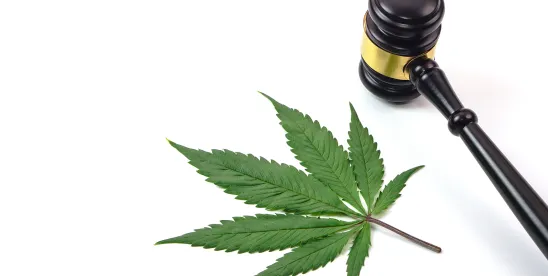There’s a great scene in the movie Wall Street when the up-and-coming Charlie Sheen (pre-Tiger Blood and now that I think about it maybe the precursor to the “winning!” mantra that seems to resonate today) is playing the role of Bud Fox, an eager trader looking to land a job with the biggest whale of them all, Gordon Gecko (played perhaps only as peak Michael Douglas could). Right before his one and only shot at impressing Gecko, Bud looks into the mirror, straightens his tie, fixes his hair, and says “life comes down to a few moments; this is one of them.”
At the risk of being slightly melodramatic, I’m reminded of that scene when I take stock of Alabama’s medical cannabis program as it sits at the intersection of a narrowing legislative window and a judicial proceeding on the brink of success (or failure).
A brief recap of where we stand at this moment. First, on the court side:
Earlier this month, the Alabama Court of Civil Appeals ruled that the Montgomery County Circuit Court lacked jurisdiction to hear the complaints of Alabama Always – an applicant for a medical cannabis license that has not been awarded a license during any of the three rounds of awards – because Alabama Always (and, presumably by extension, any other disappointed applicant for an integrated facility license) had not exhausted its administrative remedies before filing suit. As a result, the Alabama Court of Civil Appeals instructed the circuit court to lift the injunction prohibiting the AMCC from issuing integrated licenses.
And to the Legislature, we recently wrote:
As has become an annual tradition as the medical cannabis program has been in existence, there are a number of proposals currently pending in the Legislature that purport to fix what ails the program.
Sen. Tim Melson has introduced a substitute to Senate Bill 72. As a reminder, the original version of SB72 would have, in relevant part: (1) expanded the total number of integrated licenses from five to seven; (2) shifted the authority of issuing licenses from the AMCC to a consultant; and (3) shielded the decision from any judicial review. And, just as important, licenses wouldn’t be issued until well into 2026, assuming there was no litigation – an assumption I defy any serious person to tell me with a straight face is valid.
After unanimous public disapproval of the proposal, Sen. Melson introduced a substitute bill that would change the agencies tasked with appointing the consultant and would allow for the Alabama Court of Civil Appeals to review the award of licenses if the award was arbitrary or capricious or constituted a gross abuse of discretion. It would also move up the time to issue licenses, but it would still be in 2026, again assuming no lawsuits. While the substitute is a small step in the right direction and an acknowledgment of the flaws in the original bill, I still do not see it as the right path forward.
And here’s why: I reject that Alabama’s medical cannabis program requires a “legislative fix.” I believe that the original medical cannabis law, passed four years ago, isn’t broken.
In light of the Court of Civil Appeals’ decision, we may be mere months away from issuing licenses to dispensaries and integrated facilities.
Once a single dispensary license is issued, Alabama doctors can begin obtaining certifications to qualify patients for medical cannabis and Alabamians with qualifying conditions can begin to obtain medical cannabis cards. So, if you believe that the appellate court offers a path forward that may allow medical cannabis in 2025, why would you press for a bill that would ensure that it isn’t? Put simply, if it ain’t broke, don’t legislatively “fix” it.
Loyal readers of Budding Trends will recall that multiple proposals were voted out of the same committee last legislative session and did not become law. They will also recall that it took more than one legislative session to pass a medical cannabis law in the first place. Is past prologue or is this another example of reform taking time?
Sometimes the hardest course of correct action is inaction. I don’t blame anyone who looks around at Alabama’s medical cannabis landscape and thinks that something (anything) has to be done to fix what they see as a broken program. But I think they are wrong.
I believe that any efforts to engage in any sort of purported compromise legislation, no matter how well-intentioned those proposals may be, is doing a disservice to all applicants and the patients seeking access to medical cannabis in Alabama. The reasoning is simple: If both sides propose legislative changes, then both sides are at least implicitly agreeing that something needs to be done by the Legislature. I reject that premise. I think we are currently on the precipice of launching a medical cannabis program. The appellate courts appear unwilling to abide any further delays from the lower court, and investigative hearings should begin soon. That would allow for the possibility of all licenses being issued in 2025, when the so-called legislative fixes being proposed push us into 2026 at the earliest. Hold the line. Stay the course. And let’s get this program launched. Onward. Forward.
As always, thanks for stopping by.




 />i
/>i

